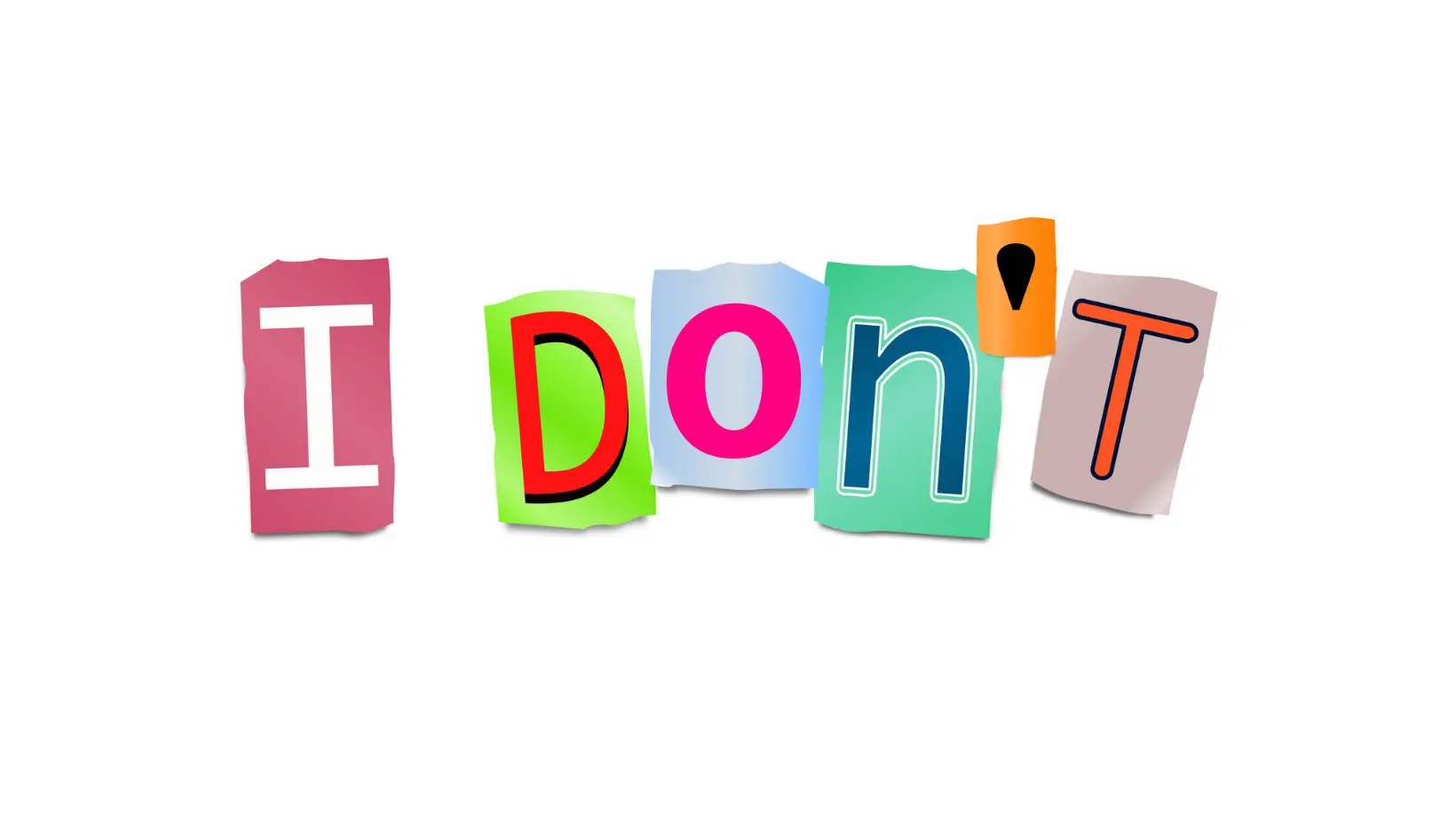How often do you feel like life is out of control? There’s not enough time. It’s too easy to do the things you don’t want to do, and too hard to do the things you do want to do.
Learning the difference between “I don’t” and “I can’t” will help you gain control of your life.
When you say, “I can’t,” it adds restriction to your life. It sets limitations. And, if you are trying to avoid something, it makes you feel helpless and out of control.
Saying, “I don’t” emphasizes choice. It focuses on your power to do what you will with your life.
So, when you are offered that piece of lemon meringue pie, you can one of two things.
“I can’t eat dessert. I’m trying to lose weight.”
“I don’t eat dessert. I’m watching what I eat.”
There are actually two things going on here.
One is using “I don’t.” The other is focusing on your effort, not your results. Focusing on what you are trying to do, your effort, is more effective than focusing on your results. Also, if you feel uncomfortable saying this out loud. Just say it to yourself. Then, say “No, thank you.”
Researchers at Boston College and the University of Houston have documented the difference between “I don’t” and “I can’t.” In one study, students who were trying to eat healthy foods were told to either say either “I don’t do X” or “I can’t do X”. For example, “I don’t eat chocolate.”
At end of the study, each student was offered a small gift for participating. They had a choice between a chocolate bar or a granola bar. Sixty-four percent of those who said “I don’t” chose the granola bar, while only 39% of the “I can’t” group made the same healthy choice.
Here’s another example. Someone asks you to do something that you feel is not a good use of your time. Say, “I don’t have time.” Remove “can’t” from the conversation. When you say “I can’t” you might second guess yourself and think, maybe I can. Or the other might ask, “Why can’t you?”
Here’s a short list of ways to use “I don’t”:
- I don’t skip workouts.
- I don’t go into meetings unprepared.
- I don’t miss my quiet time.
- I don’t leave emails or phone calls unanswered.
- I don’t miss important family events.
You get the idea.
From the family systems perspective (you knew this was coming, as “I don’t” miss a chance to look at things this way), this is about self-differentiation. This is the ability to express what you believe in the midst of surrounding togetherness pressures. Saying, “I can’t” is focused on that surrounding togetherness pressure. Instead of taking responsibility for self, you’re preoccupied with external forces.
Saying, “I don’t” is self-differentiating. It’s saying, this is who I am, without being selfish. If you can do this in a non-anxious way, you will gain more control over your life. That will make you a better leader.


